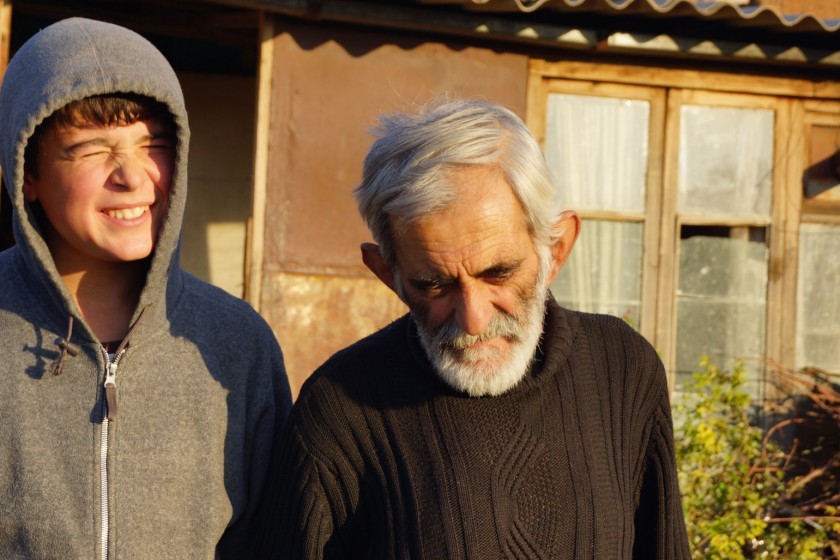
Young Misho from Nor Geghi: Cleaning a Grave to Take Care of His Sick Father
Marine Martirosyan
Snow, here and there, still covers the grass in the community of Nor Geghi in Armenia’s Kotayk Province.
14-year-old Mikayel (called Misho by his father) rolls a snowball and listens to our conversation.
“You see that kiosk over there? That’s where we lived for five years,” says the boy’s father Sergei Petrosyan, pointing to the spot in the distance. He then turns and approaches a bench near the hut. I am still looking off in the direction he pointed to. So is Misho.
It’s as if the sun’s rays have coalesced into a beam, descending on their yard dog. The dog is calm, not paying attention to those coming and going. It’s the black cat that’s restless. We sit, not talking for a few minutes. I’m the first to break the silence. I ask Mr. Petrosyan about his war experiences.
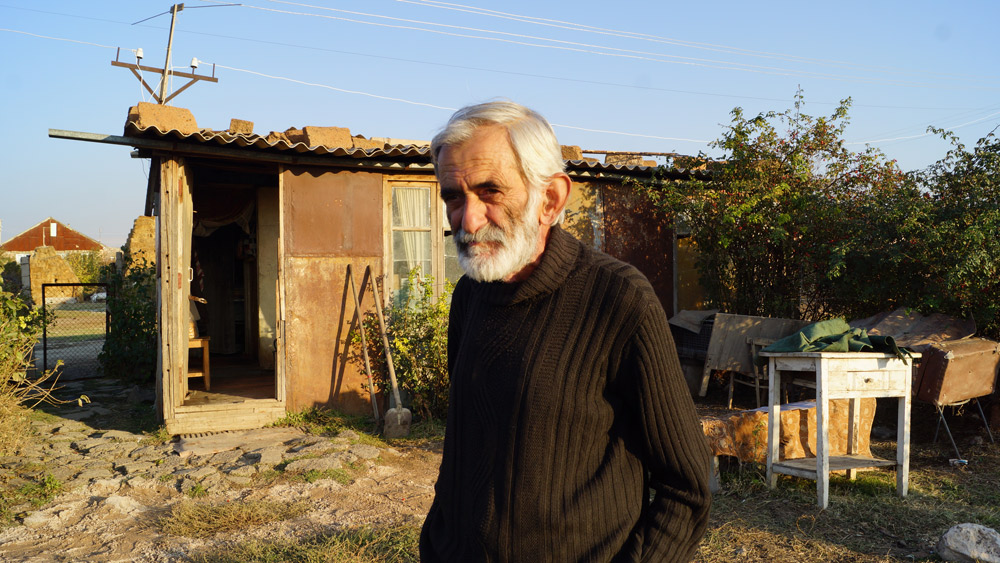
Sergei Petrosyan was born and raised in Mingechaur, a town in western Azerbaijan. He says that local sentiment towards Armenians soured in 1988 and that it’s impossible to describe how Armenian women were treated. Sergei’s family moved to Akhaltskha, Georgia, while he and four friends travelled to Armenia to sign up as volunteer soldiers.
“Misho, bring my army service paper,” Mr. Petrosyan calls out. Together, we look at the paper. He glances away. The paper says he participated in the battles of Azat, Kamo and Getashen. He suffered a head injury in 1991. “It was hot, probably the summer,” he says.
Mr. Petrosyan has trouble remembering dates. He says nothing about the battles he fought in. A heavy veil of disillusionment seems to engulf him. Sergei breathes with difficulty due to the water in his lungs. Walking has now become a chore. He whispers all this so that Misho can’t hear.
“He doesn’t know that I’m ill. The boy thinks I’ll get better,” Sergei says, his voice cracking.
Mikayel is in the eighth grade at a boarding school in Byureghavan, a small town nearby. The boy would only come home on the weekends, but now makes the trip more frequently due to his father’s ill health. “Misho works now, since I can’t,” says Sergei glancing at his son.
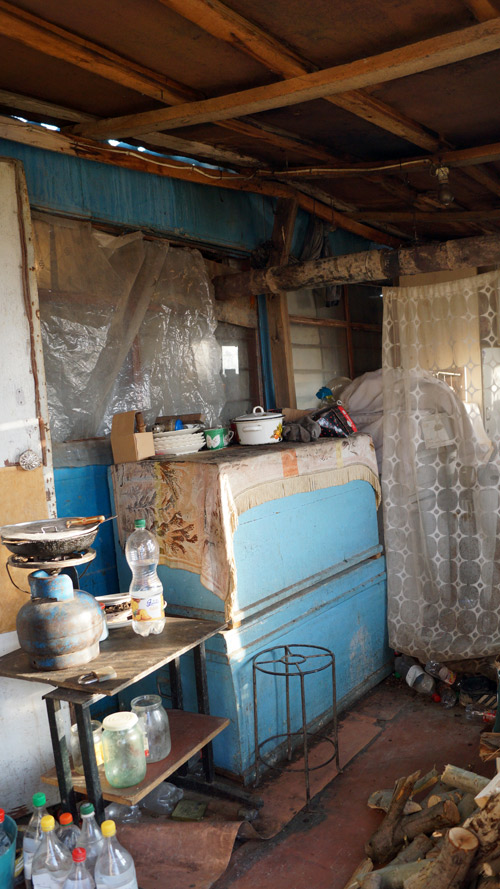 |
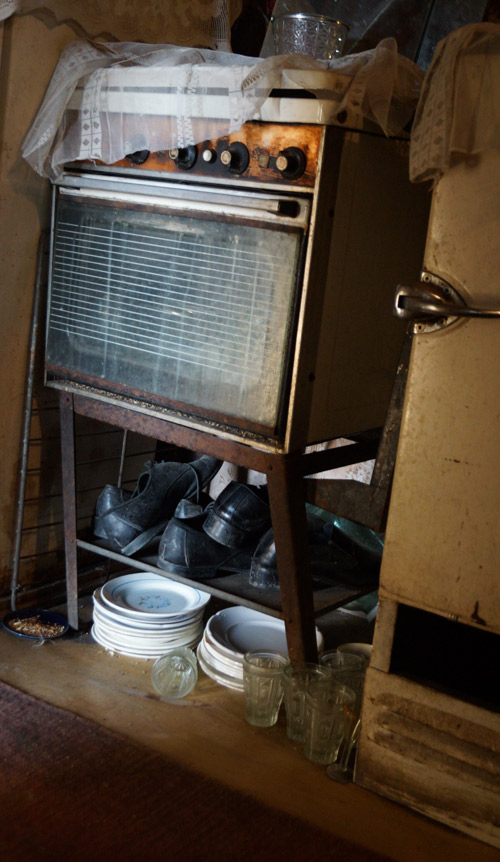 |
Mikayel and I are taking photos of the hut. An acquaintance has let the father and son live there temporarily. It’s just the one room. There’s a bed, a stove and three broken refrigerators. Some medicine rests on a refrigerator.
Misho takes boxing lessons. The boy says nothing about his aspirations. To lighten the mood, I ask Misho if he would like to meet the boxer Artur Abrahamyan. His face immediately lights up. He raises his head and smiles.
“He also works in a garage during school vacations. He cleans the vehicles brought from Russia. The boy also cleans the cemetery. Now, he takes care of me,” Sergei says. Misho agrees, adding that he doesn’t find the work difficult. He tidies the grave of a wealthy individual’s relative and gets paid 30,000 AMD ($63) monthly.
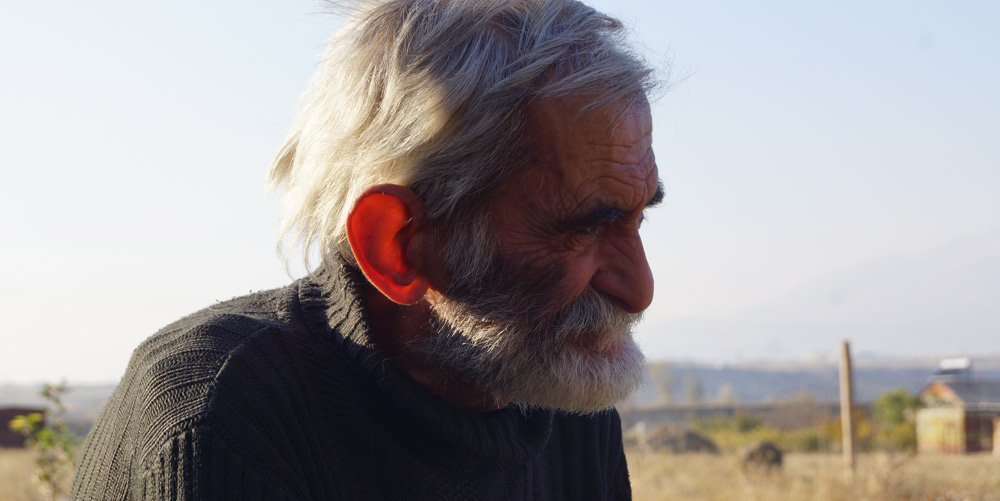
Mr. Petrosyan tells me that he wants his son to learn a good trade so that he’ll always have work.
Sergei spent ten years in Akhaltskha, where he worked at a Russian army base as a NCO. He met his wife, who was half Georgian, at the base. She was also a non-commissioned officer.
After relocating to Armenia, the family lived in various temporary shelters. “We wandered around in Arzni and Byureghavan. For a while, we lived in the Arzni factory, Mr. Petrosyan says, looking down at the ground. “It’s a pity that my wife isn’t here…” he utters, his thick eyebrows bunching up and the creases on his face growing in number. His wife died in 2010 from a brain stroke. Sergei says much changed in his life after her death. He has a daughter who lives with her maternal grandmother in Akhaltskha.
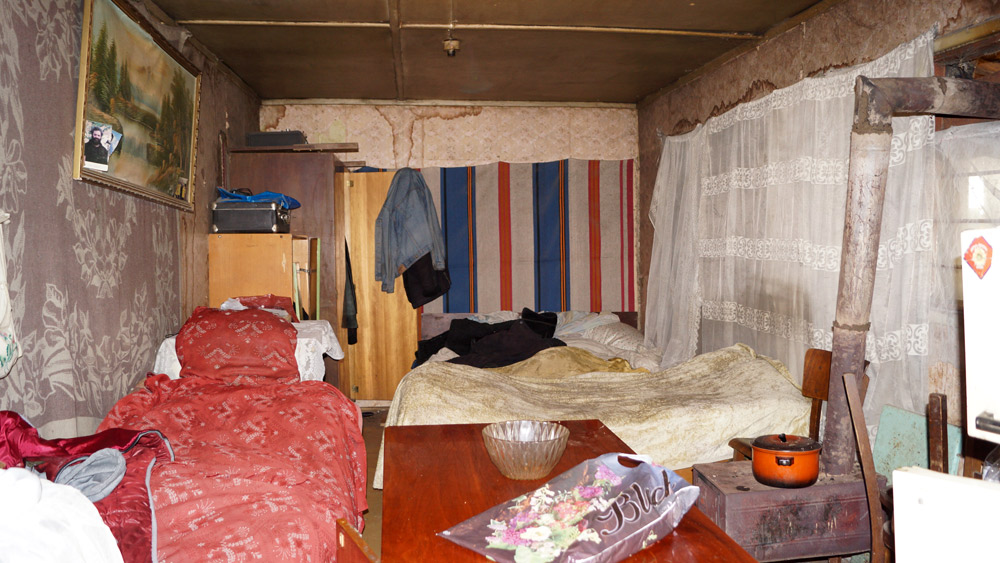
“People sometimes ask me why I don’t bring my daughter here to live with us. But where will she live?” he asks, pointing to the one room hut where he and his son barely can live in. “I don’t want Misho to stay here. There is nothing here. In the morning, it’s ho-ho-ho, and in the evening, ho-ho-ho. People just drive the cows. What will he do here?” Mikayel attentively listens to us but says nothing. The boy only responds, ramblingly, and smiles, when asked questions directed at him.
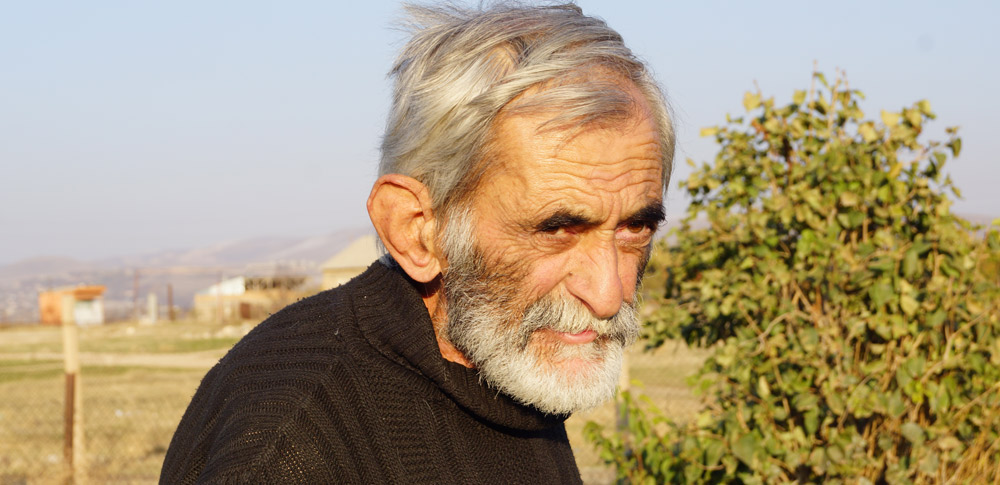
There’s an open nerve running through Sergei’s words. He says that for years he worked in the fields for a mere 1,000-2,000 AMD a day. He worked so that his kids wouldn’t go hungry. “Now, I’ve reached a point in my life where Misho is helping me,” he says, his eyes reddening.
Sergei tells me that he only received a passport eight years ago and that Misho’s birth certificate was issued with great difficulty.
I start taking photos of the father and son. “They’ll say we’re grandpa and grandson, no?” Sergei says smiling. I ask Sergei his age. “I’m sixty-two. But I probably won’t be alive to receive my pension,” he says, again whispering.
Sergei tells me that one month ago, for some inexplicable reason, the government cut his social stipend of 24,000 AMD ($50). When he went to the post office to receive his October allowance, the woman told him that his name was taken off the list. “If a homeless guy doesn’t receive a stipend, who do they give them to?” Sergei asks incredulously.
“The weather gotten colder, no? Wait. Let’s have some tea. Don’t think bad of us,” Sergei says. I tell him I have to catch the bus back to Yerevan.
He escorts me until the cemetery. On the way, I learn that Sergei was diagnosed with lung cancer three months ago. He doesn’t want his son to find out. “I know it’s a fatal disease. I’m not doing anything for treatment. I’ll live for as long as I do.”
I don’t ask any more questions. Now I understand that raw nerve, that deep layer of despair, that layered our conversation like bricks. The man is only concerned about his son’s future.
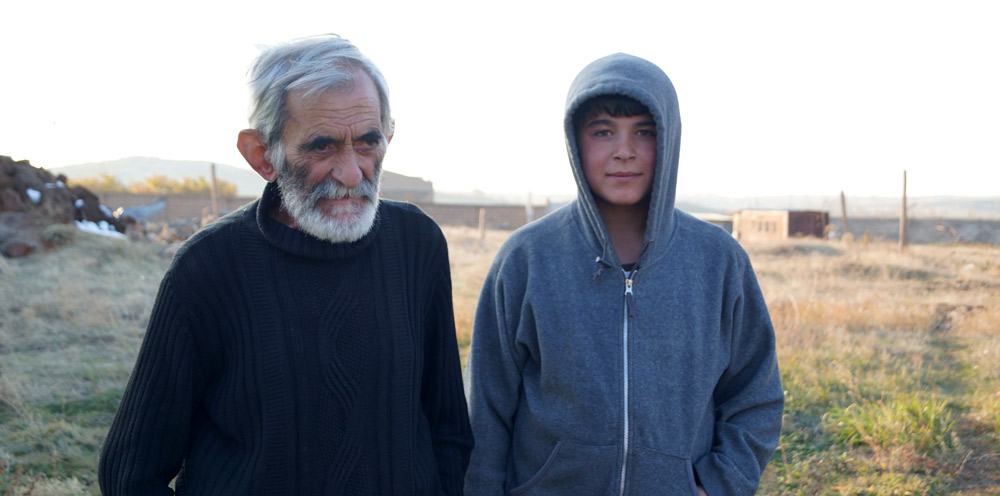
We reach the kiosk where the family lived for five years. Sergei shows me the trees he planted off in the distance. We descend along the cemetery road. He wants to telephone a cabdriver friend to take me back to Yerevan. I decline, saying I have to take photos in the village.
Sergei then tells me to call him when I reach Yerevan. He doesn’t want to worry. We smile. A ray of sunlight caresses his face.
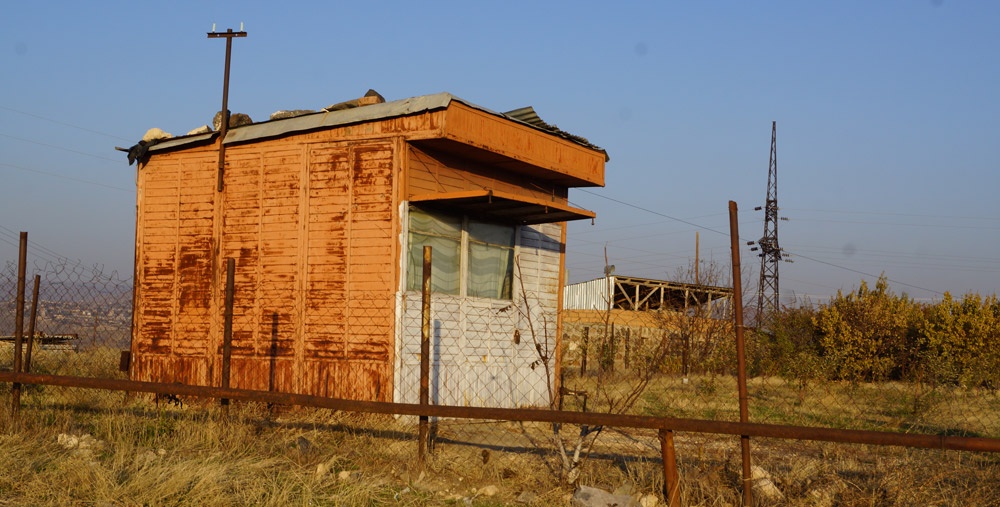
 Videos
Videos Photos
Photos




Comments (1)
Write a comment